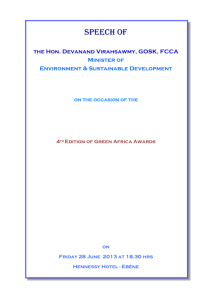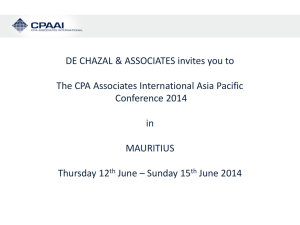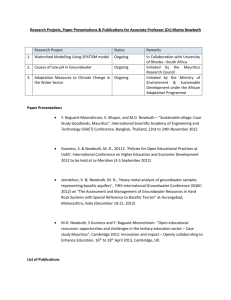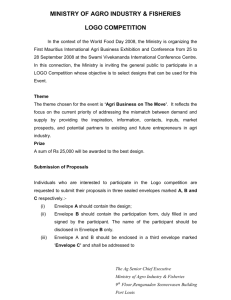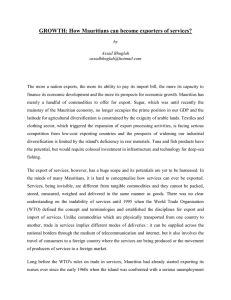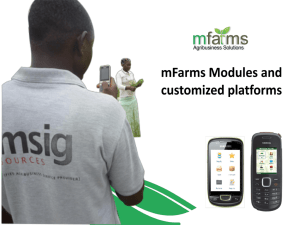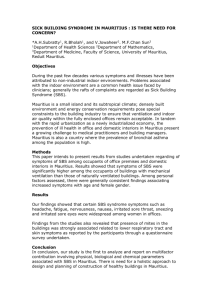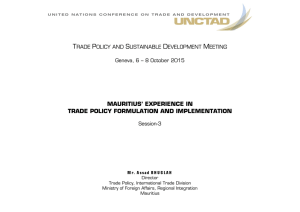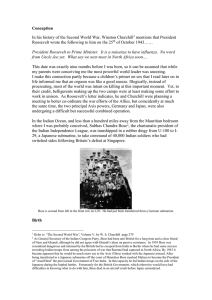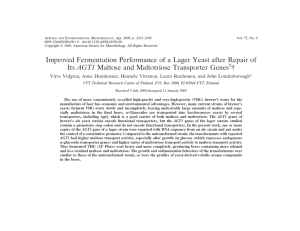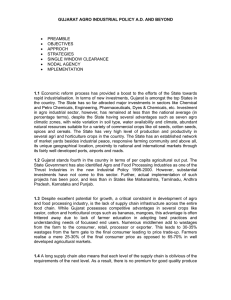INTRODUCTION - Partnership for Aflatoxin Control in Africa
advertisement
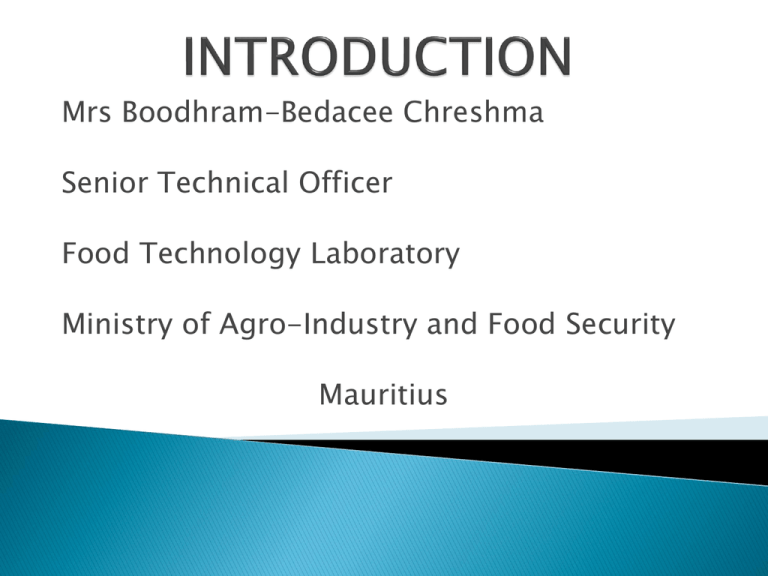
Mrs Boodhram-Bedacee Chreshma Senior Technical Officer Food Technology Laboratory Ministry of Agro-Industry and Food Security Mauritius Mauritius is a small island situated between the south-eastern coast of Africa Mauritius is a net importer of food, importing mainly from France, South Africa, Australia and India. Some food industries do export. The Mauritian consumer has become more quality-conscious with the increase in the standard of living that has occurred over the last 2 decades. Population: 1.3 million (UN, 2013) Capital and largest city: Port Louis Area: 2,040 sq km (788 sq miles) Major languages: English, French (both official), Creole, Indian languages Major religions: Hinduism, Christianity, Islam Monetary unit: Mauritian rupee (1$=Rs30) Mission and Vision of the Ministry of Agro Industry & Food Security MISSION Towards further development of agriculture and the promotion of agro industry focusing on safety, supply, quality, innovation and new technology through our service providing institutions and with stakeholders of the region. VISION To be a driver, catalyst and facilitator for operators in agriculture, fisheries and agro business. To spearhead the development of small and medium sized commercial and professional agro business sector. VISION OF THE FOOD TECHNOLOGY LABORATORY Striving towards safe and quality foods through excellence in analysis Microbiological and Chemical analysis of foods (pesticide residues, heavy metals, toxins), animal feeds and water for our export and import requirements. Provision of stakeholders safety. technical regarding assistance food to quality all and To ensure the safety and quality of both locally produced, exported and imported food products. techniques To develop new analytical Microbiological analysis for Sea Food Hub & Fish Processing Plant Monitoring of processing plants (HACCP) Monitoring of pesticide residue in fruits and vegetables Food Act 1998 Public Health Act Trades and Industries Classification Act Health and Safety Act National food safety management certification scheme by Mauritius Standards Bureau It stipulates that “any person who imports, prepares, supplies, distributes, or sells any food which is poisonous, harmful or injurious to health shall commit an offense.” Food control is centrally administered and enforced by the Ministry of Health (MOH) Local authorities participate in enforcement activities to a limited extent only. The Government Analyst Division and the Central Laboratory deal with food analysis. The Ministry of Agro Industry also carry out analysis for aflatoxins The Mauritius Standards Bureau sets specifications that should be satisfied by a particular food. Two consumer organisations are known locally: • Institute for Consumers’ Protection • Association des Consommateurs de l’Ile Maurice The local university (UOM) does carry out research in the field of food control, but much of its work is not publicised. A rather poor food-borne disease surveillance system exists. This may probably arise from the fact that there are no proper structures for reporting and recording diseases though it is mandatory to do so. Moreover, local authorities do not have the necessary infrastructure to ensure disease recording and private practitioners rarely report diseases to sanitary authority. There is also limited involvement of consumers and a lack of co-ordination between the two consumer organisations, leading to a waste in resources. The small number of inspectors specialised in food control The lack of resources, that is funding, equipment for inspection and transport, The inadequate level of training of inspectors on certain aspects of food control such as novel foods,HACCP Adoption of a national food control strategy Amendment of the food law Cooperation and coordination among different bodies in the system Transparency and information flow on the food control system Intelligent participation in regional trade agreements THANK YOU
